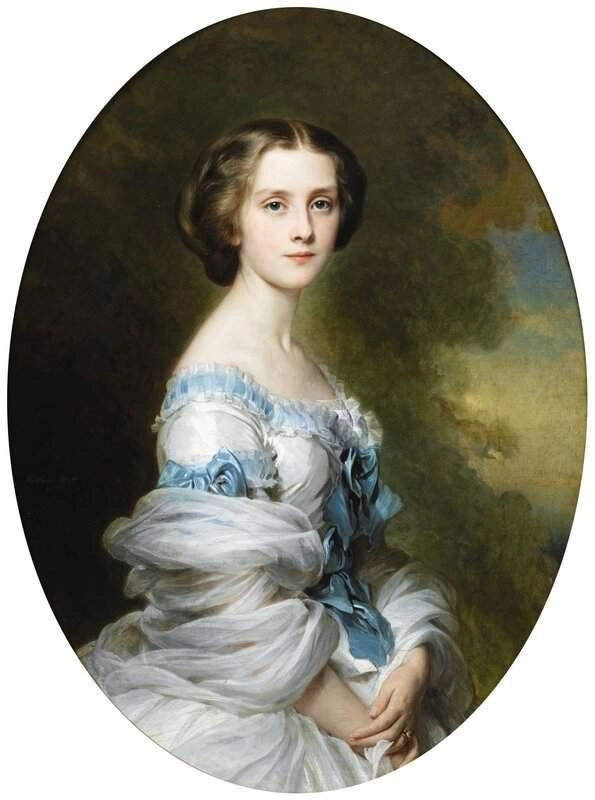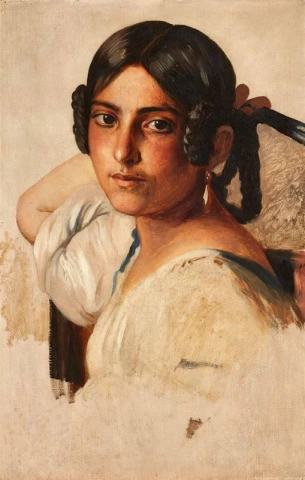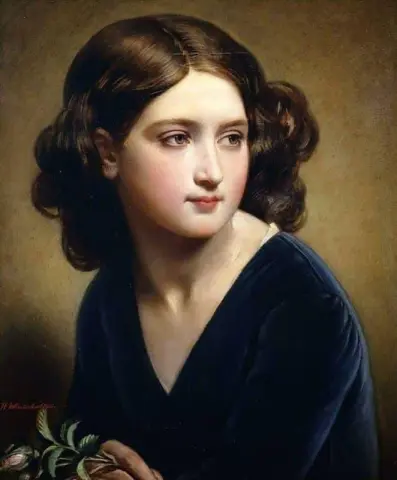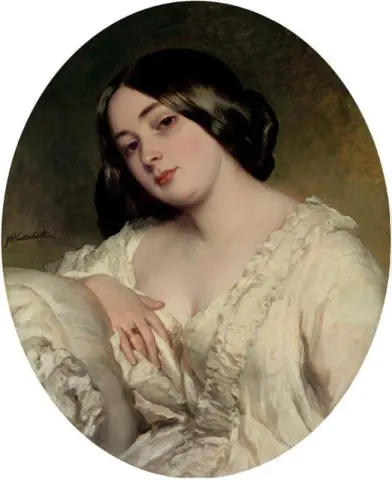

Hand painted reproductions of Franz Xaver Winterhalter
Franz Xaver Winterhalter: Celebrating Elegance and Royal Portraiture
Franz Xaver Winterhalter (1805–1873) was a German painter renowned for his elegant and refined portraits, particularly of royalty and aristocracy. Known for his ability to capture the charm and sophistication of his subjects, Winterhalter’s portraits have become synonymous with the grandeur and opulence of 19th-century European courts.
Early Life and Artistic Development
Franz Xaver Winterhalter was born on March 20, 1805, in the town of Menzenschwand, Germany. His early training took place in the traditional German academic style, and by the age of 19, he had moved to Munich to further his studies at the renowned Academy of Fine Arts. Winterhalter’s talent quickly gained recognition, and he soon became known for his exquisite portrait work.
Winterhalter’s career flourished in France, where he moved in the 1830s, eventually becoming the official court painter for Napoleon III and the French Imperial family. His mastery of capturing the grace and beauty of his royal subjects made him one of the most sought-after portrait painters of his time.
Style and Technique
Winterhalter’s portraits are characterized by their refined elegance, rich detail, and sense of movement. He often portrayed his subjects in full-length, regal poses, adorned in luxurious fabrics, jewels, and intricate accessories. His use of light was equally distinctive—Winterhalter was adept at employing soft, natural light to create a glowing effect, enhancing the beauty and grace of his subjects.
A hallmark of Winterhalter’s style was his ability to balance realism with idealization. While his portraits were meticulously detailed, capturing every fabric fold and intricate lacework, they also showcased his subjects in an idealized form, emphasizing their beauty and dignity. His portrayal of women, in particular, was noted for its delicacy and refinement, often positioning them as symbols of grace and aristocratic femininity.
Legacy and Recognition
Franz Xaver Winterhalter’s portraits remain iconic symbols of 19th-century European aristocracy. His works, which adorned the palaces and estates of royalty, captured the cultural and political elite of the time with an unparalleled sense of refinement and elegance.
Winterhalter’s legacy endures through his depictions of the European court life, immortalizing queens, empresses, and princesses with exceptional grace. His portraits continue to be admired for their timeless beauty, impeccable technique, and the glimpse they offer into the lives of historical figures.
Own a Handcrafted Oil Painting Reproduction of Franz Xaver Winterhalter’s Masterpieces
Bring the splendor and elegance of 19th-century European royalty into your home with a handcrafted oil painting reproduction of Franz Xaver Winterhalter’s masterpieces. Each reproduction captures the grace, beauty, and intricate details of his royal portraits, offering you a connection to the grandeur of the past.
Imagine owning an original-style painting by one of the greatest artists in history. At POD, we offer you the chance to make this dream a reality. Each canvas is faithfully reproduced down to the smallest detail, allowing you to experience the beauty of the artist’s vision in your own home.
Our reproductions are crafted by experienced painters using the finest materials and time-honored methods. We are committed to delivering works of exceptional quality that will inspire and bring joy to your family for generations to come.









































